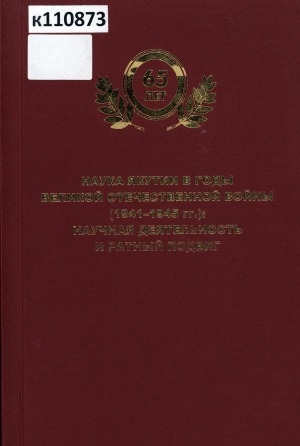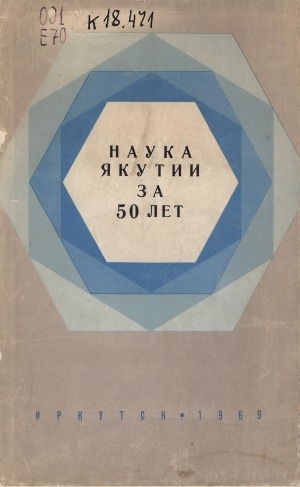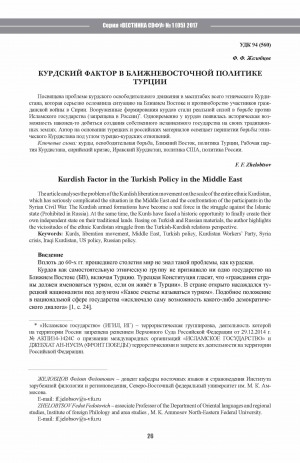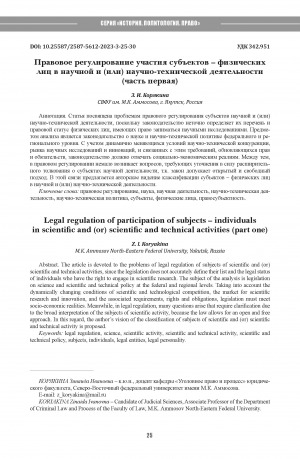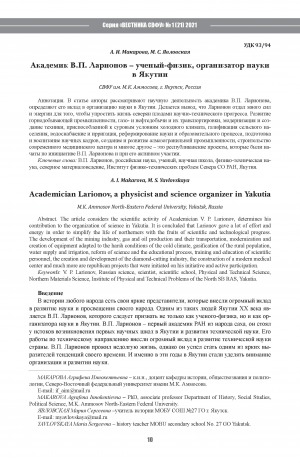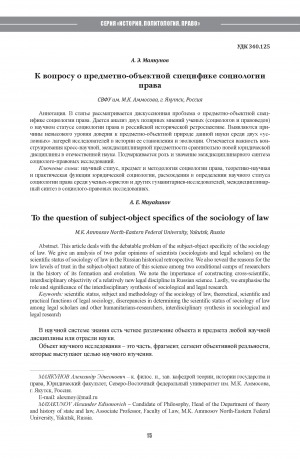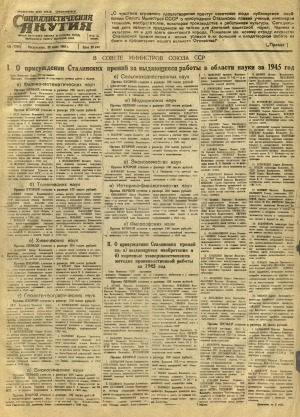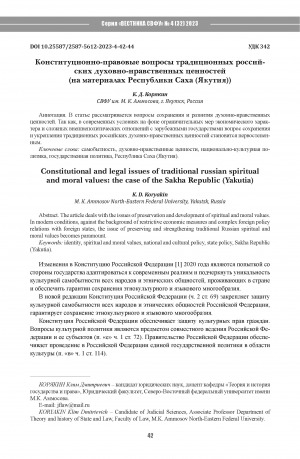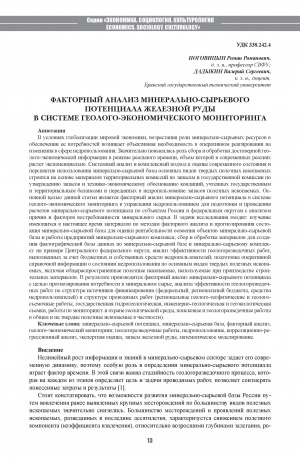В статье представлена история научного комплекса Якутии в период глубоких трансформационных процессов, начиная от распада Советского Союза и заканчивая масштабной реформой российской науки. В связи с этим рассмотрены ключевые общероссийские и республиканские факторы, формировавшие среду научной деятельности. Установлены важнейшие последствия кризисных явлений периода (сокращение объемов финансирования, Һутечка кадровһ за рубеж, снижение престижа профессии ученого в обществе и др.) для академических, вузовских и отраслевых научно-исследовательских структур в республике. Выявлены меры государственной поддержки исследовательской деятельности, а также рассмотрены попытки реформирования научного комплекса и активизации развития инновационных технологий. Показаны организационные изменения в научном комплексе Якутии. Установлено, что его структура достаточно гибко реагировала на общественно-политические и социально-экономические запросы времени. Отмечено, что, наряду с широким спектром проблем, с которыми столкнулась отечественная наука, в исследовательском плане в рассматриваемый период проявился ряд позитивных моментов (возможность разработки Һзакрытыхһ ранее тем, освобождение от идеологических догм и административных препонов, развитие международного сотрудничества). Показан вклад крупнейших ученых в сохранение научного потенциала Якутии, а также названы основные достижения сотрудников исследовательских организаций республики.
The article presents the history of the scientific complex of Yakutia in the period of profound transformational processes, beginning with the collapse of the Soviet Union and ending with a large-scale reform of Russian science. In this regard, key all-Russian and republican factors that shaped the environment of scientific activity were considered. The most important consequences of the crisis phenomena of the period (reduction of the amount of financing, “leakage of personnel” abroad, reduction of the prestige of the profession of a scientist in society, etc.) are established for academic, university and branch scientific research structures in the republic. Measures of state support for research activities are revealed, as well as attempts to reform the scientific complex and enhance the development of innovative technologies. Organizational changes in the scientific complex of Yakutia are shown. It was established that its structure responded quite flexibly to the socio-political and socio-economic needs of the time. It was noted that, along with a wide range of problems faced by domestic science, a number of positive aspects (the possibility of developing “previously closed” topics, liberation from ideological dogmas and administrative obstacles, the development of international cooperation) appeared in the research plan during the period under review. The contribution of the largest scientists to the preservation of the scientific potential of Yakutia is shown, as well as the main achievements of the employees of the research organizations of the republic.


